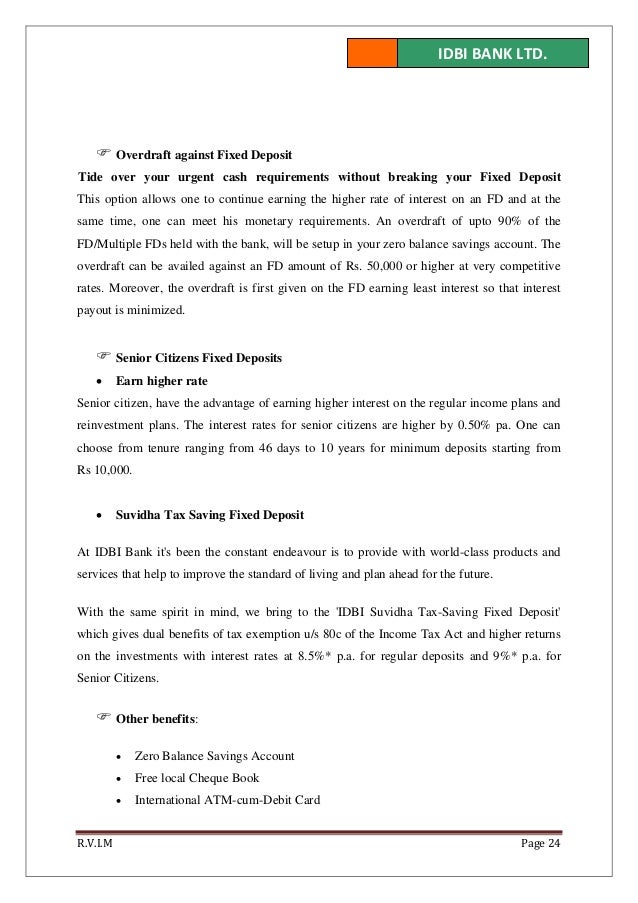Idbi Saving Account Interest Rate

IDBI Systematic Savings Plan (SSP) helps you to add your savings at your complete convenience. With your regular incomes, you can start saving any fixed amount from 100 to less than 2 crore every month. The amount as decided by you will be deducted every month from your savings account. The IDBI Bank Systematic Savings.
As per data compiled by BankBazaar, public sector banks such as IDBI Bank and Canara Bank offer interest rates up to 3.5 per cent and 3.2 per cent respectively on savings accounts. IDBI Savings Account - Get to know types of IDBI savings accounts, eligibility, minimum balance, ATM card charges, key features & benefits at Loanbaba. IDBI Savings Account- get to know your eligibility, types of savings accounts, how to apply, interest rate. IDBI Bank offers you a range of savings account for optimal management of your money. With Account, you not only save your money but also make it grow. Account Advantage. Faster transfer of funds; Online options to pay your bills or tax; Good options to grow money at attractive interest rates Instant Banking; International Debit Card.
Most salaried individuals manage multiple savings accounts. One savings account is linked to salary deposits and investments, while another is used to pay loan instalments, credit card dues, manage monthly expenses, etc. You can also use the savings account for parking your emergency funds.
Savings bank accounts generally carry lower interest rates compared to those on fixed deposits.

Public sector banks offer much lower interest rates on savings accounts than what many new private and small finance banks do. It’s important to give some serious thought on how much interest is paid by banks for leaving your funds in the savings account.
Interest rates are comparable to those of leading private banks
As per data compiled by BankBazaar, public sector banks such as IDBI Bank and Canara Bank offer interest rates of up to 3.5 percent and 3.2 percent, respectively on their savings accounts. These interest rates are competitive when compared with what leading private banks offer. For instance, HDFC Bank and ICICI Bank offer 3-3.5 percent interest.
However, large public sector banks give far lower interest rates to their savings account holders. For instance, State Bank of India (SBI) and Bank of Baroda (BOB) pay just 2.70 percent and 2.75 percent, respectively.
The interest rates offered by small finance banks to their savings account holders are higher compared to those on public sector banks. For instance, AU Small Finance Bank and Ujjivan Small Finance Bank offer interest rates of up to 7 percent and 6.5 percent, respectively.
Minimum balance requirements are lower
The minimum balance requirement in savings accounts of public sector banks starts from Rs 250 and at State Bank of India, it’s nil. This is kept much lower compared to the requirements of leading private banks in India because public sector banks are backed by the Government of India and they are more interested in reaching out to lower and middle-income group customers with their services. For Axis Bank and HDFC Bank, the minimum balance requirement is Rs 2,500 to Rs 10,000. In the case of ICICI Bank, the minimum balance requirement is Rs 1,000 to Rs 10,000.
Choose a bank with a long-term track record, good service standards, wide branch network and ATM services across cities; a higher interest on savings accounts would be a bonus.

Also read: Keep your bank account adequately funded to avoid penalties
Idbi Saving Account Interest Rate Near Me
A note about the table
Idbi Home Loan Interest Rates
Interest rates on savings accounts for all BSE-listed public sector and private banks are considered for data compilation. Banks whose websites don't advertise the data are not considered. Minimum balance requirement for regular savings accounts and excluding basic savings bank deposit (BSBD) account are considered.